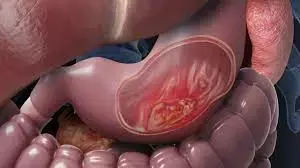- Home
- Medical news & Guidelines
- Anesthesiology
- Cardiology and CTVS
- Critical Care
- Dentistry
- Dermatology
- Diabetes and Endocrinology
- ENT
- Gastroenterology
- Medicine
- Nephrology
- Neurology
- Obstretics-Gynaecology
- Oncology
- Ophthalmology
- Orthopaedics
- Pediatrics-Neonatology
- Psychiatry
- Pulmonology
- Radiology
- Surgery
- Urology
- Laboratory Medicine
- Diet
- Nursing
- Paramedical
- Physiotherapy
- Health news
- Fact Check
- Bone Health Fact Check
- Brain Health Fact Check
- Cancer Related Fact Check
- Child Care Fact Check
- Dental and oral health fact check
- Diabetes and metabolic health fact check
- Diet and Nutrition Fact Check
- Eye and ENT Care Fact Check
- Fitness fact check
- Gut health fact check
- Heart health fact check
- Kidney health fact check
- Medical education fact check
- Men's health fact check
- Respiratory fact check
- Skin and hair care fact check
- Vaccine and Immunization fact check
- Women's health fact check
- AYUSH
- State News
- Andaman and Nicobar Islands
- Andhra Pradesh
- Arunachal Pradesh
- Assam
- Bihar
- Chandigarh
- Chattisgarh
- Dadra and Nagar Haveli
- Daman and Diu
- Delhi
- Goa
- Gujarat
- Haryana
- Himachal Pradesh
- Jammu & Kashmir
- Jharkhand
- Karnataka
- Kerala
- Ladakh
- Lakshadweep
- Madhya Pradesh
- Maharashtra
- Manipur
- Meghalaya
- Mizoram
- Nagaland
- Odisha
- Puducherry
- Punjab
- Rajasthan
- Sikkim
- Tamil Nadu
- Telangana
- Tripura
- Uttar Pradesh
- Uttrakhand
- West Bengal
- Medical Education
- Industry
Double flap technique after proximal gastrectomy effective for treating gastric cancer: Study

Double flap technique after proximal gastrectomy was considered the most effective technique for reconstruction, according to a study published in the BMC Surgery.
Proximal gastrectomy is a widely performed procedure that has become more common with an increasing number of proximal gastric cancer cases. Several types of reconstructive procedures after proximal gastrectomy have been developed, and it remains controversial which procedure is the most advantageous with regard to the preservation of postoperative gastric stump function and nutritional status. In the present study, we retrospectively analyzed reconstructive procedures in a consecutive case series for proximal gastrectomy, primarily focusing on postoperative body weight maintenance, nutritional status, and gastric remnant functional preservation.
The researchers enrolled 69 patients who had undergone proximal gastrectomy for gastric cancer in our institute between 2005 and 2020. Short-term complications, preservation of gastric remnant functions, nutritional status, and post-operative weight changes were compared.
The Results of the study are as follows:
- After proximal gastrectomy, the numbers of patients who underwent direct esophago-gastrostomy, jejunal interposition, double tract reconstruction, and the double flap technique were 9, 10, 14, and 36, respectively.
- The patients in whom the double flap technique was performed suffered no reflux esophagitis after surgery.
- Prevalence of gastric residual at 12 months after surgery was lowest in the double flap technique group.
- Moreover, the double flap technique group had a better tendency regarding post-operative changes of serum albumin ratios.
- Furthermore, the post-operative body weight change ratio of the double flap technique group was smallest among all groups and was significantly better than that of the double tract group.
Thus, the researchers concluded that double flap technique after proximal gastrectomy was considered the most effective technique for reconstruction which leads to better bodyweight maintenance, and results in less reflux esophagitis.
Reference:
Functional benefits of the double flap technique after proximal gastrectomy for gastric cancer by Zenichiro Saze et al. published in the BMC Surgery.
https://doi.org/10.1186/s12893-021-01390-1
Dr. Shravani Dali has completed her BDS from Pravara institute of medical sciences, loni. Following which she extensively worked in the healthcare sector for 2+ years. She has been actively involved in writing blogs in field of health and wellness. Currently she is pursuing her Masters of public health-health administration from Tata institute of social sciences. She can be contacted at editorial@medicaldialogues.in.
Dr Kamal Kant Kohli-MBBS, DTCD- a chest specialist with more than 30 years of practice and a flair for writing clinical articles, Dr Kamal Kant Kohli joined Medical Dialogues as a Chief Editor of Medical News. Besides writing articles, as an editor, he proofreads and verifies all the medical content published on Medical Dialogues including those coming from journals, studies,medical conferences,guidelines etc. Email: drkohli@medicaldialogues.in. Contact no. 011-43720751


